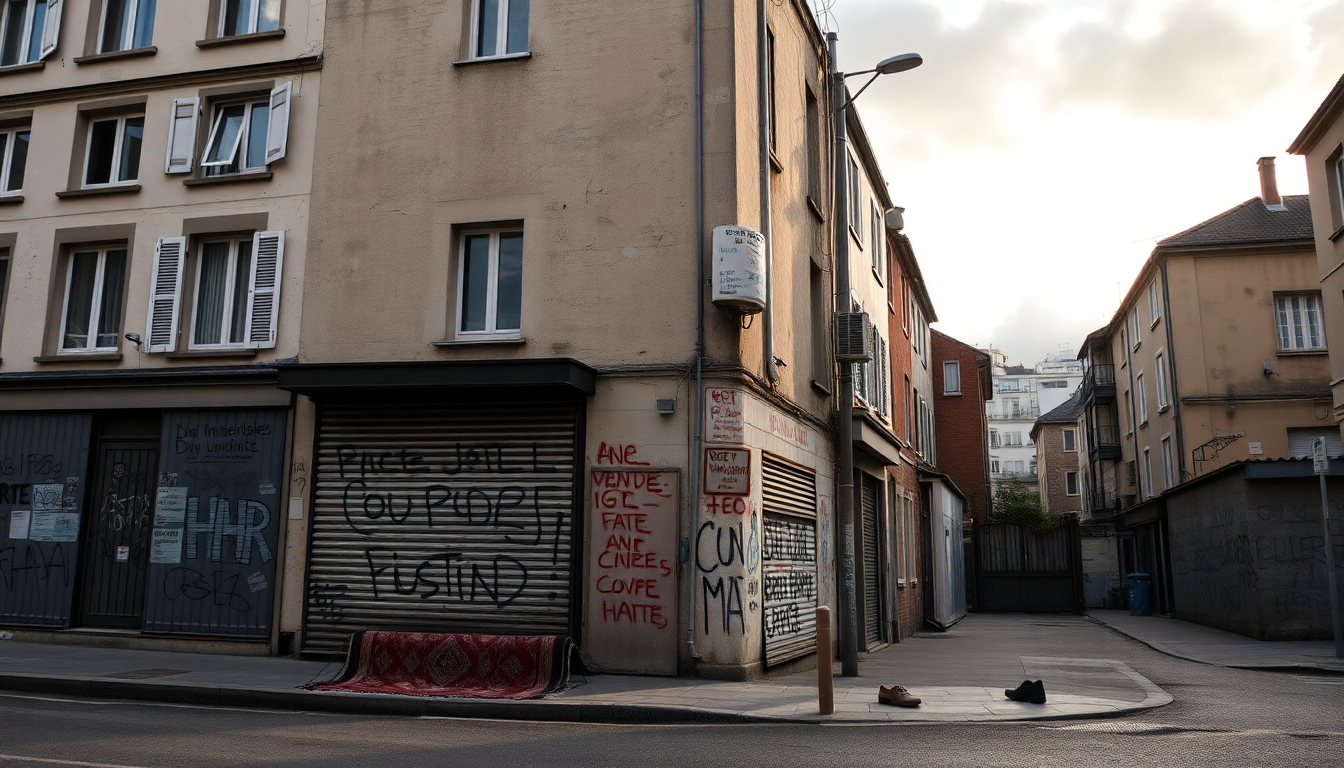Table of Contents
In recent months, the French Muslim community has been grappling with a troubling rise in violence and hostility. This surge isn’t just a local issue; it reflects a broader pattern of increasing anti-Muslim sentiment throughout the country. But what’s driving this aggression? With incidents ranging from vandalism to tragic fatal attacks, it’s essential to unpack the context and implications of these developments.
A Disturbing Surge in Violence
The latest statistics paint a grim picture of escalating Islamophobia in France. For instance, a recent report highlighted a staggering 72% increase in anti-Muslim incidents between January and March 2025 compared to the same period last year. The sheer volume of violence is hard to ignore, with mosques becoming targets of vandalism. Take the attack on El Hidaya Mosque in Roussillon, where windows were shattered and racist flyers were plastered everywhere—this isn’t just vandalism; it’s a direct assault on a place of worship.
Even more alarming are the physical assaults that have emerged alongside this trend. The shootings of Hichem Miraoui and another Muslim man in May, alongside the tragic stabbing of Aboubakar Cisse at a mosque, highlight the lethal consequences of this rising anti-Muslim sentiment. Yet, it seems the French authorities are reluctant to confront these alarming statistics publicly. Why is that? It raises serious concerns about their commitment to tackling these pressing issues.
The Impact of Government Rhetoric
It’s impossible to ignore the role of governmental rhetoric in shaping the climate of fear and violence faced by Muslims in France. Recently, the French government released a controversial report alleging that the Muslim Brotherhood has infiltrated French institutions, framing it as a national security threat. But is this really the case? Such narratives, pushed by state officials, effectively stigmatize the Muslim community and paint them as a collective danger.
These characterizations have serious repercussions. They foster an environment where Islamophobia becomes normalized. The government’s focus on “Islamist separatism” has led to aggressive policies targeting Muslim institutions, including the closure of numerous mosques and schools. This isn’t just about maintaining order; it aligns with a broader trend of silencing dissent and curtailing the rights of Muslims under the guise of national security.
The Evolving Political Landscape
The political scene in France has undergone a dramatic shift in recent years, with far-right ideologies gaining ground. One of the key factors in this shift is the mainstreaming of anti-Muslim sentiment, which was once relegated to fringe groups. Prominent figures, including President Emmanuel Macron, have adopted the language of “separatism,” effectively militarizing the narrative surrounding Muslim identity in France.
This political maneuvering goes beyond just winning votes. The targeting of Muslim organizations and individuals has created an atmosphere of fear, alienation, and stigmatization within the community. With the state conducting inspections of Muslim entities and tightening regulations around religious expression, it’s no wonder many Muslims in France feel increasingly vulnerable.
Looking Ahead: Community Resilience
As we gaze into the future, the trajectory of anti-Muslim sentiment in France remains uncertain. The persistence of systemic discrimination, paired with rising violence, presents significant challenges for the Muslim community. But it’s vital to recognize the resilience and strength that lies within this community. They are not just passive victims; they continue to advocate for their rights and push back against the narratives that aim to marginalize them.
Engaging in open dialogue, fostering solidarity, and challenging discriminatory policies will be crucial in combating the trend of Islamophobia. The fight against anti-Muslim sentiment isn’t just a concern for those directly affected; it’s a societal issue that calls for collective action. After all, isn’t it time we work together to create a more inclusive and equitable France for all its citizens?


